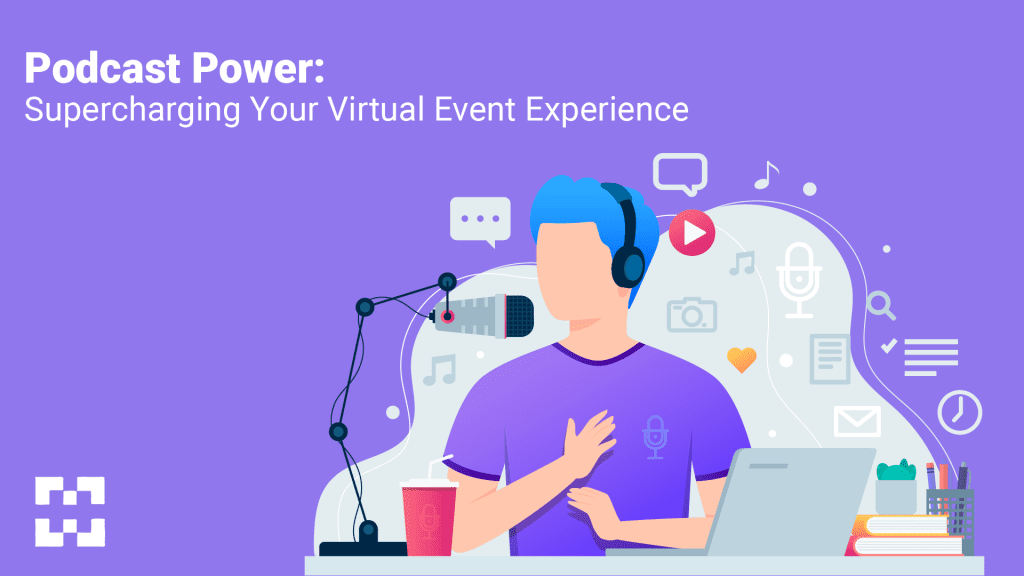
As virtual events continue to evolve, event organizers are constantly seeking innovative ways to enhance attendee engagement and create memorable experiences. One exciting way to achieve this is by integrating podcasts into your virtual events. Podcasts offer a unique and powerful medium to reach and captivate your audience. In this blog, we’ll explore how to seamlessly integrate podcasts into your virtual events for an added layer of richness and interactivity.
Why Integrate Podcasts?
Podcasts are experiencing a surge in popularity, and they offer numerous advantages for virtual events:
Expert Insights: Podcasts provide an opportunity to feature industry experts and thought leaders, enhancing the value of your virtual event.
Engagement: Audio content can be consumed passively, allowing attendees to multitask or listen while on the go.
Content Diversity: Podcasts can add variety to your event’s content, making it more engaging and appealing to a broader audience.
Now, let’s dive into the steps to effectively integrate podcasts into your virtual event:
Step 1: Define Your Podcast Theme
Start by determining the podcast’s theme and content. Consider what will resonate most with your virtual event attendees. Common themes include expert interviews, thought leadership discussions, behind-the-scenes insights, or interactive Q&A sessions.
Step 2: Secure Quality Podcast Equipment
Ensure you have the right equipment for podcast recording. This includes microphones, headphones, and recording software to maintain audio quality.
Step 3: Pre-record or Go Live
Decide whether you want to pre-record your podcast episodes or host them live during your virtual event. Pre-recording allows for editing and post-production, while live podcasts offer real-time engagement.
Step 4: Promote Your Podcast Sessions
In the lead-up to your virtual event, create buzz around your podcast sessions. Use social media, email marketing, and event promotion to encourage attendees to tune in.
Step 5: Incorporate Podcast Breaks
Integrate your podcast episodes into the event’s schedule. These can be used as intermissions, or you can schedule specific times for attendees to listen to the podcast content.
Step 6: Interactive Q&A
Encourage engagement by hosting live Q&A sessions after the podcast episodes. This allows attendees to ask questions and interact with podcast hosts or guests.
Step 7: Post-Podcast Discussions
After each podcast session, consider hosting post-session discussions. This can be done through live chat, forums, or breakout rooms where attendees can share their thoughts and insights.
Step 8: Podcast Repositories
Make sure that your podcasts are easily accessible to attendees. Provide a central repository where they can listen to or download podcast episodes.
Step 9: Podcast Promotion Post-Event
After your virtual event concludes, continue to promote the podcast content. Encourage attendees to subscribe, review, and share your podcast episodes to extend the event’s impact.
Step 10: Measure and Learn
Collect data on podcast engagement during the event, such as the number of listens, interactions, and feedback. Use this data to refine your podcast strategy for future virtual events.
Conclusion
Integrating podcasts into your virtual event is a creative way to enhance the attendee experience, offer diverse content, and engage your audience on a deeper level. By following these steps and strategically weaving podcasts into your event’s program, you can create a more dynamic and immersive virtual event that resonates with your audience long after it’s over.





